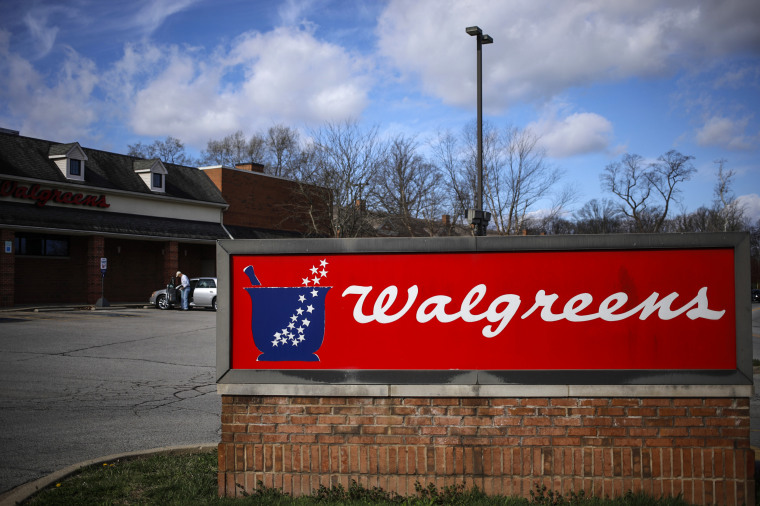Demand for booster shots and Covid tests driven by the winter’s omicron surge continued to pay off for one of the country’s largest drugstore chains last quarter as more customers streamed into stores.
Walgreens Boots Alliance — which operates about 9,000 Walgreens stores in the U.S., including Puerto Rico, and more than 2,200 Boots stores in the United Kingdom — reported revenue of $33.76 billion Thursday, beating Wall Street’s expectations. The company said same-store U.S. sales jumped by nearly 15 percent in the quarter compared to the same period last year — the largest increase in more than 20 years.
Analysts say the challenge now will be to keep up the additional foot traffic as the pace of vaccinations and testing continues to slow.
The drugstore chain said it administered 11.8 million Covid vaccinations in the quarter, a significant drop from the previous quarter, when it administered 15.6 million shots.
“While there is a good chance that COVID-19 testing and vaccine sales may help results for longer than we thought, eventually this should normalize as the pandemic (hopefully) begins to fade,” John Boylan, an analyst at Edward Jones, said in a recent research note.
To bolster its customer base, Walgreens has been expanding its network of in-store clinics with an emphasis on primary care. It paid $5.2 billion last year for a majority stake in VillageMD, a chain of retail health clinics in stores. There are 102 clinics open now, and Walgreens plans to have 200 open by the end of the year.
“What they’re trying to do is really build an ecosystem,” said Amar Singh, a senior director at the retail consulting firm Kantar. People will come for services like flu shots and treatment for ailments like strep throat. Walgreens is betting that a so-called halo effect will prompt them to spend more in the stores.
A recent survey from Mintel, a market research firm, found that about 40 percent of shoppers said they were more likely to shop at a drugstore they visited for a medical appointment. “They linger while they’re waiting for their appointment,” said Katie Hansen, a retail and e-commerce analyst for Mintel. “There’s also an opportunity to encourage purchases, [such as] recommendations from physicians.”
But analysts also point out that Walgreens is late to the in-store clinic party: CVS opened its first MinuteClinic more than 15 years ago, and it now has more than 1,100 clinics in CVS and Target stores around the country. “Walgreens has been a laggard,” Singh said.
The chain also faces a couple of big hurdles that could interfere with growing foot traffic, as well as challenges in the pharmacy sector, such as online competition and lower reimbursement costs for medications.
Foremost is a shortage of labor and inventory during the pandemic. If shelves are bare and shoppers can’t find workers to assist them, they may give up on making purchases entirely. Like other big drugstore chains, Walgreens has cut its hours at some locations when it can’t get enough people to staff them.
Drugstores also face what’s known in the industry as a “shrink” problem. A rash of shoplifting by what authorities suspect are organized theft rings has been plaguing big cities. The crimes have prompted stores to put large swaths of merchandise under lock and key, including lotions, eyedrops and other over-the-counter medications.
“Consumers are looking for that seamless shopping experience,” Hansen said. Having to hunt down an associate to unlock a case before purchasing is a hassle, and it quashes a customer’s ability to browse and discover new products. “It’s definitely a barrier and something drugstores will have to be mindful of moving forward,” she said.
Despite the challenges, analysts say, Walgreens is in a good position to succeed.
Hansen said Mintel surveys found that close to 6 in 10 consumers would trust drugstores to give them overall health and wellness recommendations. “The pandemic has heightened consumers’ focus on holistic health and wellness. Drugstores are well-positioned to meet this need,” she said.
